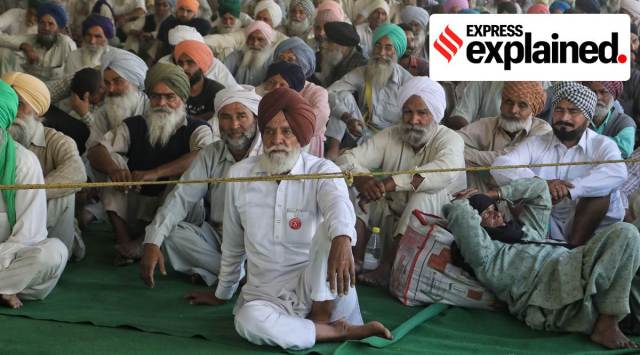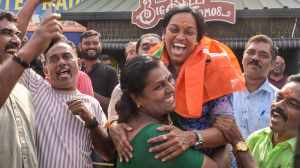
However, a scrutiny of the report reveals that the consultation process through which the committee arrived at this conclusion was far from widespread, as it indicated. In fact, the committee “interacted directly”, either through video conferencing or physically, with only 73 of the 306 farmer bodies (24 per cent) which it had invited for consultation.
The committee also claimed that of the 19,207 representation / suggestions it received as online feedback on its portal, two-third supported the farm laws. But the report shows that out of the 19,207 responses, only 5,451, or 28 per cent, came from farmers.
Of these, the maximum responses were from Maharashtra (2,000-2,500), followed by “Unspecified” location (a little over 2,000), and then Rajasthan, Karnataka and Madhya Pradesh. These states saw negligible protests over the farm laws.
From three states, Uttar Pradesh, Andhra Pradesh and Haryana, between 1,000 and 1,500 responses were received. Less than 1,000 was the figure for other states and Union Territories, including Punjab, which saw the maximum protests against the three farm laws.
Similarly, of the total 142 representatives who participated in meetings of the committee, only 78 were from farmers’ organisations, while 64 belonged to industry bodies and other organisations.
Story continues below this ad
The 92-page report shows that the committee had invited 306 farmer unions and Farmer Producers Organisations (FPOs) for consultation. This list included the 41 farmers’ unions spearheading the protest against the three laws, which boycotted the committee and did not participate in the meetings.
“The Committee interacted directly with 73 Farmer Organizations, either through video conferencing or physically. These Farmer Organizations represented more than 3.83 crore farmers…,” the report states.
While it adds that of these, 4 Farmers Organizations, representing 51 lakh farmers (13.3 per cent), did not support the Act, 7 representing 3.6 lakh farmers (1 per cent) supported with some suggestions for modifications, and 1 representing 500 farmers was not clear on the farm laws, the report says: “… 61 Farmer Organizations, representing 3.3 crore farmers, fully supported the Acts — a majority constituting 85.7 per cent of the total farmers.”
However, as per various official estimates, the number of farmers in India is in the range of 9 crore to 15 crore. Even under PM-Kisan, the number of beneficiaries is 10.09 crore. The figure of 3.3 crore is hence about 30% or lower of the total farmers.
Story continues below this ad
Besides, the committee says, it received feedback from 5,451 farmers, 929 FPOs, 151 farmers unions and 12,496 other stakeholders online. “This feedback on the portal showed that around two-thirds of the respondents supported the Acts,” the committee said. However, 5,451 farmers add up to only 28 per cent of the responses.

The report says the committee held 11 meetings between January 21 and February 23, 2021, in which 142 people participated, 78 of them from farmers’ unions and FPOs, 18 each from industry bodies and state governments, 7 who were professionals or academicians, 10 representing private markets and state agriculture marketing boards, and 11 government officials and procurement agencies.
Among the industry bodies that participated were Amul, ITC, FCI, Sugna Foods, Horticulture Produce Exporters Association, Venkateshwara Hatcheries, CII, FICCI, APEDA, Seafood Exporters Association, All India Rice Miller Association, All India Rice Exporters Association, Tractor Manufacture Association, Cotton Association of India, Fertilizer Association of India, India Pulses and Grain Association, All India Poultry Feed Manufacturer Association, and MPEDA.
Staying the implementation of the three farm laws on January 12, 2021, the Supreme Court had constituted a four-member committee for “the purpose of listening to the grievances of the farmers relating to the farm laws and the views of the Government and to make recommendations”. The committee was asked to submit its report within two months from the date of its first sitting.
Story continues below this ad
Newsletter | Click to get the day’s best explainers in your inbox
The apex court had taken this step after talks between the government and farmer unions failed to resolve the standoff. Two days later after the committee was announced, one of the members, Bhupinder Singh Mann, had recused himself.
The committee submitted its report on March 19, 2021; and was under wraps since. On November 19, 2021, the government announced the repeal of the three laws.









































